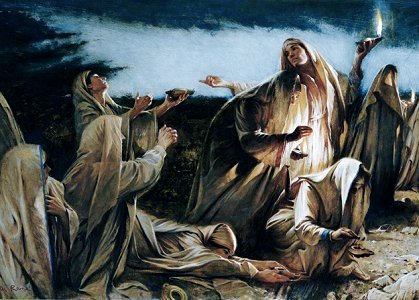Lyrics

Jesu, our captain and our king,
Adorable defender;
Now comes the night on ebon wing,
And us to sleep we render.
Still rest we, Jesu, in Thy name,
Our keeper and our guard;
And wakeful thus in spirit claim
The watcher’s blest reward.
At noon of night, by Gospel voice
The Bridegroom is proclaimed;
He comes, in Him let all rejoice
By whom Heav’n’s realm is framèd.
Forth haste the holy maiden bands,
To meet His coming state;
Bearing their bright lamps in their hands
Joying with gladness great.
The foolish bide the gate before,
And hold their lamps long quenchèd;
Smiting in vain that palace door,
Whose bolts will ne’er be wrenchèd.
Then watch we and in spirit stand
With panoply complete;
That we, when Christ shall be at hand,
Go forth our Lord to greet.
At noon of night its warning thus
Doth voice of seer deliver;
Be praise unto the Lord from us—
To Sire and Son forever.
And to the Holy Ghost be praise;
For perfect Trinity,
Of substance one, by us always
Shall be praised and lauded be.